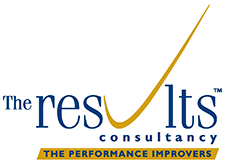 BD resilience is often a key factor behind one professional’s success compared to another. That more robust approach, which the professional has cultivated enables them to gain a steady flow of quality new work opportunities.
BD resilience is often a key factor behind one professional’s success compared to another. That more robust approach, which the professional has cultivated enables them to gain a steady flow of quality new work opportunities.
To them, their BD activities are intrinsic to everything else they do – not an add-on. Over time this mind-set has led them form good BD habits and take greater confidence and courage in their approach – all of which pays off by the sizeable and high quality portfolios they build.
Through our research over the years, we have found that ‘resilience’ in relation to BD has three key components:
-
o
- The ability to keep going with your BD over the long term, despite the almost inevitable heavy workload and other calls on your time
- The mind-set that enables you to bounce back from BD setbacks
- The courage to take the actions that will help you to achieve the BD results you want
o
o
Forge habits
On the first point, the ability to keep going is greatly helped when business development disciplines become habits. Strong BD disciplines of, for example, keeping in touch with at least five contacts each week create a habit – the intrinsic feeling of ‘this is how I do my business development’, and, more importantly, habits help you to get the results you want.
Regain control of time
The most successful professionals we have observed recognise that time (or rather lack of it) can be a major hurdle to their BD effectiveness. They do not, however, use time as an excuse. For most professionals BD tends to fit in the important but not urgent category and, as such, falls off their ‘to do’ lists. Amongst those more successful professionals, there is a tendency to block out time so they can focus on one thing at a time and do it well. By focusing on one task at a time, successful professionals are highly more effective in working through their equally dense to-do lists. They are also more likely to fit in and action the BD activity they need to do to build their networks and portfolios.
Take courage
Personal courage has a great deal to do with BD resilience. It is very easy for professionals (even senior and seasoned ones) to cave in too easily to BD challenges, some of which are client created, others we create in our own minds. Here are a few situations where courage greatly enhances your BD approach:
-
o
- Courage in agreeing fees – This is about having the confidence in your worth as an individual and as a team, and the work you produce, as well as confidence in your scope and the way you have built up your price.
-
o
- The courage to ask for commitment from clients and contacts to meet up with you and colleagues, to give you access to others in their organisation, to give you time to discuss things with them, to hear your idea etc. Sometimes we don’t ask because we fear the answer – or fear feeling pushy or needy. A key to BD resilience is having a strong reason for asking for the commitment and then confidence in the real value you can give if that ‘ask’ is granted.
-
o
- The courage to go after your ideal clients, not just easy work…and to say no to work that’s not on strategy – It also takes courage to say ‘no’ to new work opportunities, and courage to reduce your target list to a smaller number of quality opportunities (rather than have the false comfort of a long list of potential organisations who may possibly give you work).
My final Courage points takes us to that last BD Resilience component – that of taking an honest look at where you are in relation to your BD goals and doing something about it. No matter whether your BD goals simply consist of a budget number to hit (or are more robust in terms of specific activities, work type, clients revenue areas etc), you can still undertake this personal challenge.
Take time out periodically to evaluate whether you are on track at this point in the year. In doing so, consider what do you need to change? What do you need to do more of – and what do you need to do less of? What further support do you need? Do your priorities need to change now that you have assessed your progress?
For further tips and advice on building BD resilience, contact John Timperley on tel 020 7488 4419


